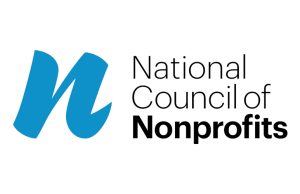Two key U.S. senators have requested that the Trump administration provide data on charitable deductions so far in 2018, amid concerns that tax reform could drive down charitable giving this year.
Sens. James Lankford (R-Okla.) and Christopher Coons (D-Del.) lead the Financial Services and General Government Senate Committee on Appropriations as chairman and ranking member, respectively. Their letter to U.S. Treasury Secretary Steven Mnuchin on Friday followed up on his testimony during a subcommittee hearing on May 22.
The senators requested that the administration “provide any data that is currently available on charitable deductions claimed in 2018 and projections for charitable giving in the tax year. Going forward, we request quarterly data on the number of charitable deductions claimed and the average size donations given, and when available, a comparison of this data for tax year 2018 to the previous ten years.” The full text of the two-page letter can be found here.
The senators “remain concerned and seek additional information on the potentially alarming decrease in charitable giving in the United States following significant changes to the tax code made by the “Tax Cuts and Jobs Act” (TCJA). The letter cited a recent study by The American Enterprise Institute (AEI), which projects a decrease in giving of nearly 4 percent, or $17 billion, mainly as a result of the TCJA’s almost doubling of the standard deduction to $24,000 for couples.
“As co-chairs of both the National Prayer Breakfast and the Senate Prayer Breakfast, we believe that even in times of tight budgets, we have a moral obligation to support our neighbors most in need, and charities play an essential role in doing just that,” the senators wrote.
“If projections are lower than previous years, or concerning trends related to charitable giving are identified, we look forward to working together to address these issues immediately,” the senators concluded.
Congress passed the TCJA in December with only weeks remaining in 2017, so it likely didn’t have much impact on charitable giving in the 2017 tax year. Initial estimates released last month by the Giving USA Foundation reported a record $410 billion in charitable giving during 2017, including $287 billion by individuals. The AEI study, released last month, projects a $17.2 billion decrease in giving this year, based on a static model, and $16.3 billion under a model that projects modest economic growth.
The AEI’s study estimates that 27 million taxpayers will switch from itemizing deductions to claiming the standard deduction, leaving fewer than 20 million that will continue to itemize.
Lankford is among the sponsors of legislation that would create a Universal Charitable Deduction, allowing taxpayers, whether they itemize or not, to be eligible to deduct some portion of their charitable deductions. Rep. Mark Warner (R-N.C.) has sponsored similar legislation in the House. Studies have indicated a universal deduction could offset any declines in charitable giving.
Steve Taylor, senior vice president and counsel for public policy at United Way Worldwide in Alexandria, Va., called the senators’ letter a “really great surprise.” There have been a lot of conversations going on with Sen. Coons, both with nonprofits in Delaware and with the community in Washington, D.C., asking him to support Lankford’s effort to establish a universal deduction, he said.
Lankford’s bill would be “hugely helpful” to most in the nonprofit sector but to stay nonpartisan, Taylor said charities would like to see bipartisan support before they formally endorse any measure. “We’re doing what we can to support Lankford’s effort but especially trying to get a Democratic sponsor,” he said. “We really need a bipartisan Senate bill for it to have any real chance,” he said.
Friday’s letter indicates some tangible evidence that conversations with Coons to connect with Lankford have borne fruit. What’s especially important about the letter, Taylor said, is that it makes clear that there’s been no study – academic, economic or think tank – that supports the argument that tax reform will boost charitable giving because taxpayers will have more money in their pockets.
“Our hope is just to make the sector aware that there’s really not any support for lack of action. Everything is not going to be OK if they just let things play out,” Taylor said. Even now, months after the tax bill passed, the AEI comes to same conclusion that everyone else does: Giving is going to go down materially.










